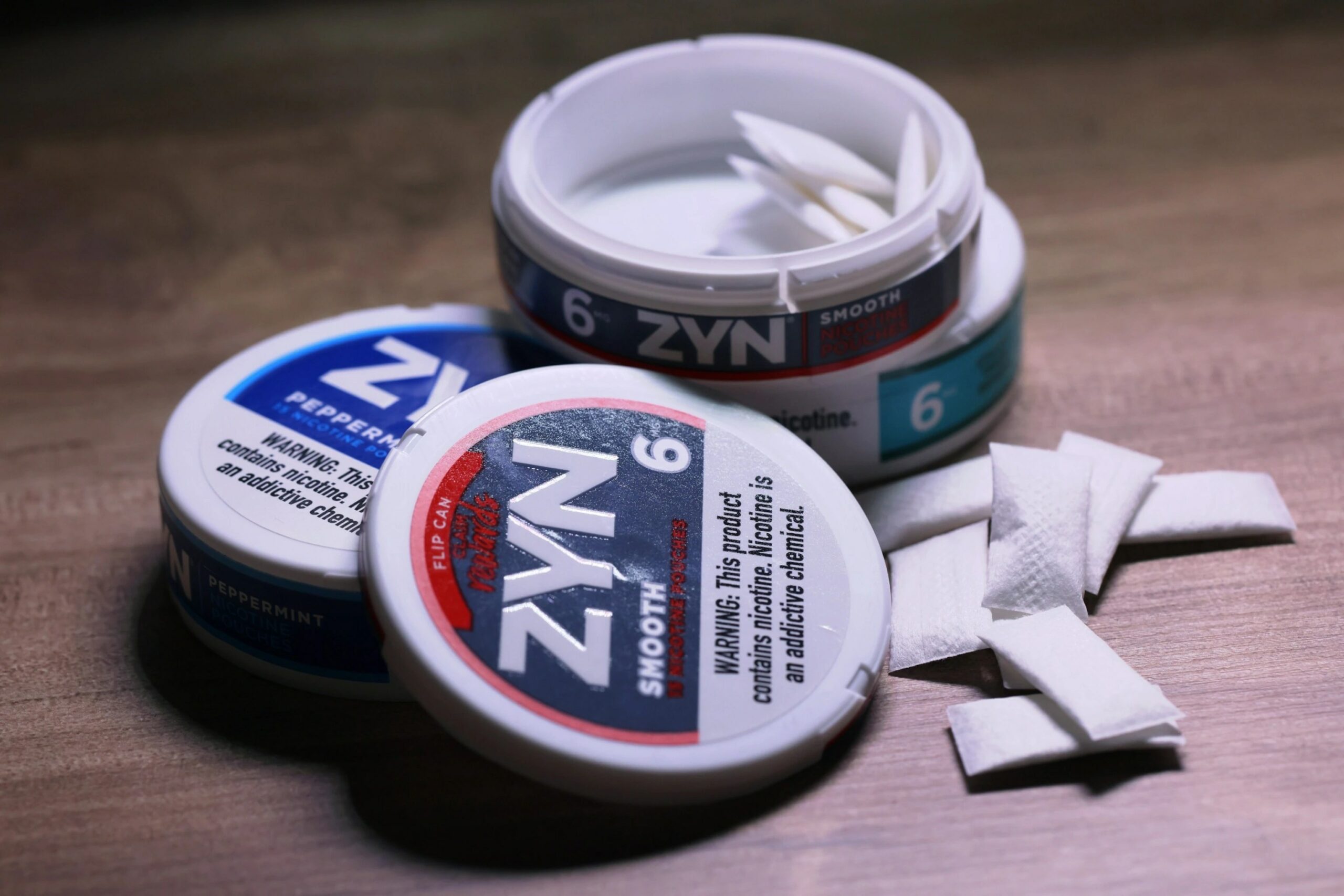Nicotine pouches like ZYN offer a discreet, tobacco-free way to consume nicotine. But are they truly harmless? This article delves into the potential impact of ZYN on your gum health, separating fact from fiction and providing evidence-based information to help you make informed decisions.
How ZYN Affects Gum Health
ZYN, while tobacco-free, still contains nicotine. This is important because nicotine restricts blood flow to your gums by constricting blood vessels. Imagine a garden hose being pinched – the flow of water reduces. Similarly, nicotine reduces the delivery of vital oxygen and nutrients to your gum tissue. This “starved” environment weakens gums, making them more susceptible to damage and slower to heal.
Nicotine’s Role: A Starved Garden
Think of your gums as a vibrant garden, thriving on a steady supply of oxygen and nutrients delivered by the bloodstream. Nicotine acts like a dam, constricting this vital flow. This reduced circulation weakens the gum tissue, making it more vulnerable to infection and hindering its ability to repair itself. Just like a neglected garden struggles to flourish, gums deprived of nourishment become susceptible to a range of problems.
The Link to Gum Disease: Not a Direct Cause, But a Contributing Factor
It’s important to clarify that ZYN doesn’t directly cause gum disease in the same way that bacterial plaque does. Gum disease, whether gingivitis (the early stage) or periodontitis (the more advanced form), is primarily caused by bacterial infection. However, ZYN can create a more favorable environment for these problems to develop or worsen due to the compromised gum health. Imagine a small tear in a piece of fabric – the added stress from reduced blood flow caused by nicotine can make that tear bigger and more problematic.
Beyond the Gums: Other Oral Health Risks
The potential effects of ZYN extend beyond just your gums. The altered oral environment can contribute to a range of other issues.
Dry Mouth and Its Consequences
Nicotine’s drying effect on the mouth creates an environment ripe for cavities. Saliva plays a vital role in protecting your teeth by washing away food particles and neutralizing harmful acids. A dry mouth, also known as xerostomia, is more vulnerable to the bacteria that cause tooth decay.
Leukoplakia: A Potential Precursor to Oral Cancer
Another concern associated with ZYN use is the increased risk of leukoplakia. These are white or grayish patches that can appear inside your mouth, often on the gums, tongue, or inside of the cheeks. While not all leukoplakia patches are cancerous, some can be precancerous. It’s essential to have any unusual white patches in your mouth checked by a dentist or doctor.
Bruxism, Bad Breath, and More
The constant, low-level stimulation from nicotine can worsen teeth grinding (bruxism). This can lead to jaw pain, worn-down enamel, and even damage to the temporomandibular joint (TMJ). Bad breath (halitosis) is another common side effect, as the changes in oral bacteria and dry mouth create an unpleasant odor. Some users have also noticed an increase in tooth sensitivity after beginning usage.
Protecting Your Oral Health While Using ZYN
If you choose to use ZYN, vigilance and proactive oral care are paramount.
Prioritize Oral Hygiene
Think of your mouth as a garden that needs regular tending to thrive. Meticulous brushing twice a day and flossing daily are essential for removing plaque and debris, minimizing the potential for irritation and inflammation. This is especially crucial for ZYN users, as nicotine can exacerbate existing gum problems.
Regular Dental Checkups: Your Best Defense
Regular dental checkups are your best line of defense against the potential harms of nicotine products like ZYN. Your dentist can detect early signs of gum disease, leukoplakia, or other oral health problems linked to ZYN use. They can also provide personalized advice based on your specific situation and monitor any changes in your mouth. Be sure to inform your dentist about your ZYN use, as this transparency allows for more targeted care.
Consider the Risks and Alternatives
ZYN is not FDA-approved as a nicotine replacement therapy, unlike nicotine gum or lozenges. Discover the duration of phentermine’s presence in your body and understand its effects by exploring our comprehensive guide on how long does phentermine stay in your system. If you’re using ZYN as a means to quit smoking, discuss FDA-approved options with your doctor.
Can Your Dentist Tell You Use ZYN?
While there’s no single “ZYN test,” dentists are trained to spot subtle changes in the oral environment. Localized gum recession where the pouch is habitually placed is a common indicator. Changes in gum texture – inflammation, discoloration, or leukoplakia – at the pouch site can also be telltale signs. An experienced dentist is more likely to notice these subtle but significant alterations. Open communication with your dentist is always the best approach.
“I had no idea how terrible Zyns were for dental health…my gums…then my teeth started hurting…right near where I usually put Zyns…” – Reddit User.
This personal account underscores the potential impact of ZYN on oral health and highlights the importance of proactive dental care.
The Long-Term Outlook: Ongoing Research
Much of the damage caused by nicotine pouches occurs at a microscopic level initially, so users might not be aware of the harm until it becomes more severe. While some short-term effects are clear, the long-term consequences of ZYN use are still under investigation. Current research suggests a possible link between long-term use and an increased risk of gum recession, tissue changes and potentially even oral cancer.
The Bottom Line: Informed Choices for a Healthy Smile
Staying informed about the potential risks of ZYN empowers you to make conscious decisions about your oral health. Regular self-exams, open communication with your dentist, and meticulous oral hygiene are essential for minimizing potential harm. Remember, the absence of tobacco doesn’t equate to harmlessness. This information is for educational purposes only and does not constitute medical advice. Always consult with a qualified healthcare professional for any health concerns or before making any decisions related to your health or treatment.
- Crypto Quotes’ Red Flags: Avoid Costly Mistakes - June 30, 2025
- Unlock Inspirational Crypto Quotes: Future Predictions - June 30, 2025
- Famous Bitcoin Quotes: A Deep Dive into Crypto’s History - June 30, 2025
















